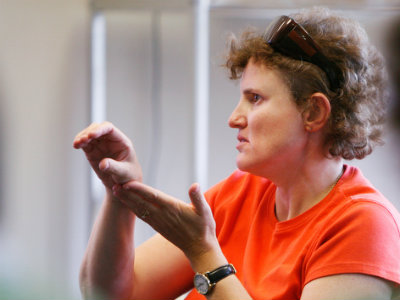
Deafblind people lack access to specialist social care assessments, despite being entitled to them, leading to inadequate support, the charity Sense said today.
In a report based on responses from 89 deafblind people, Sense found that a significant minority had not had a specialist assessment.
This is despite 2009 Department of Health guidance on social care for adults and children who are deafblind stating that councils should ensure that any assessment is “carried out by a specially trained person/team, equipped to assess the needs of a deafblind person – in particular to assess need for one-to-one human contact, assistive technology and rehabilitation”.
Some respondents who had had specialist assessments also said that it had been difficult to access them and that it required multiple requests or support from organisations such as Sense.
With the government due to set out legal reforms to adult social care in a White Paper on Wednesday, Sense said that, not only should deafblind people retain their right to a specialist assessment, they should receive them without unnecessary delay.
However, the report also said that people who had had an assessment found it difficult to access services that met their needs, leading to pressures on carers, isolation and, in some cases, depression. Sense also raised concerns about young people losing access to support in the transition to adult services.
Among other recommendations, Sense called for the social care system to take account of the full range of needs of people who are deafblind, such as mobility and communication, and not just their personal care needs; provide them with specialist, rather than mainstream support, where this is assessed as being needed; and assess young people earlier in the transition process to make it smoother.
Mithran Samuel is Community Care’s adults’ editor.The state of personalisation 2012 – read our exclusive research
Related articles
Ministers to back care funding gap but delay implementation
Social care still a gamble for deafblind people, Tories told


 A trauma-informed approach to social work: practice tips
A trauma-informed approach to social work: practice tips  Problem gambling: how to recognise the warning signs
Problem gambling: how to recognise the warning signs 




 Find out how to develop your emotional resilience with our free downloadable guide
Find out how to develop your emotional resilience with our free downloadable guide  Develop your social work career with Community Care’s Careers and Training Guide
Develop your social work career with Community Care’s Careers and Training Guide  ‘Dear Sajid Javid: please end the inappropriate detention of autistic people and those with learning disabilities’
‘Dear Sajid Javid: please end the inappropriate detention of autistic people and those with learning disabilities’ Ofsted calls for power to scrutinise children’s home groups
Ofsted calls for power to scrutinise children’s home groups Seven in eight commissioners paying below ‘minimum rate for home care’
Seven in eight commissioners paying below ‘minimum rate for home care’
 Facebook
Facebook X
X LinkedIn
LinkedIn Instagram
Instagram
Comments are closed.